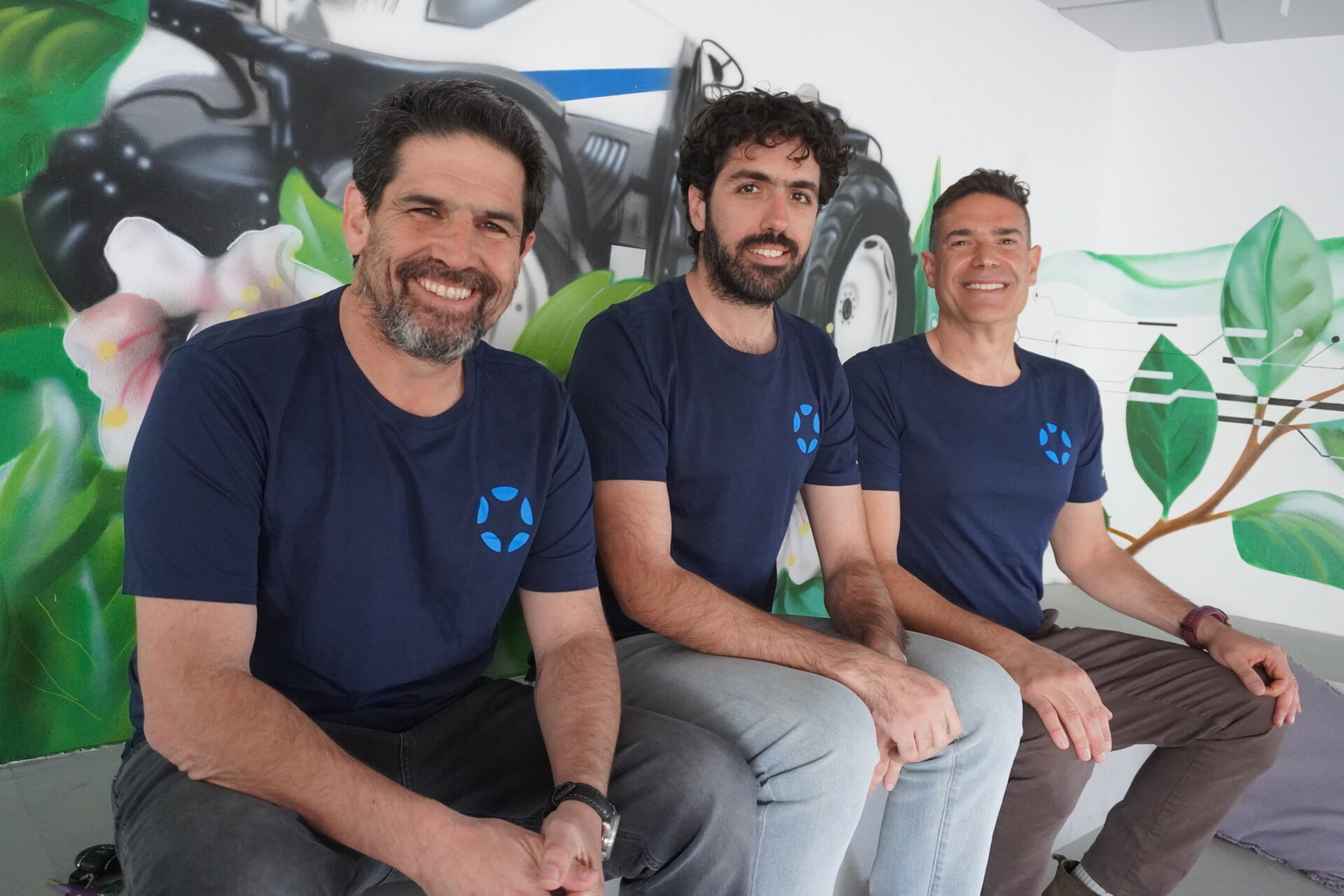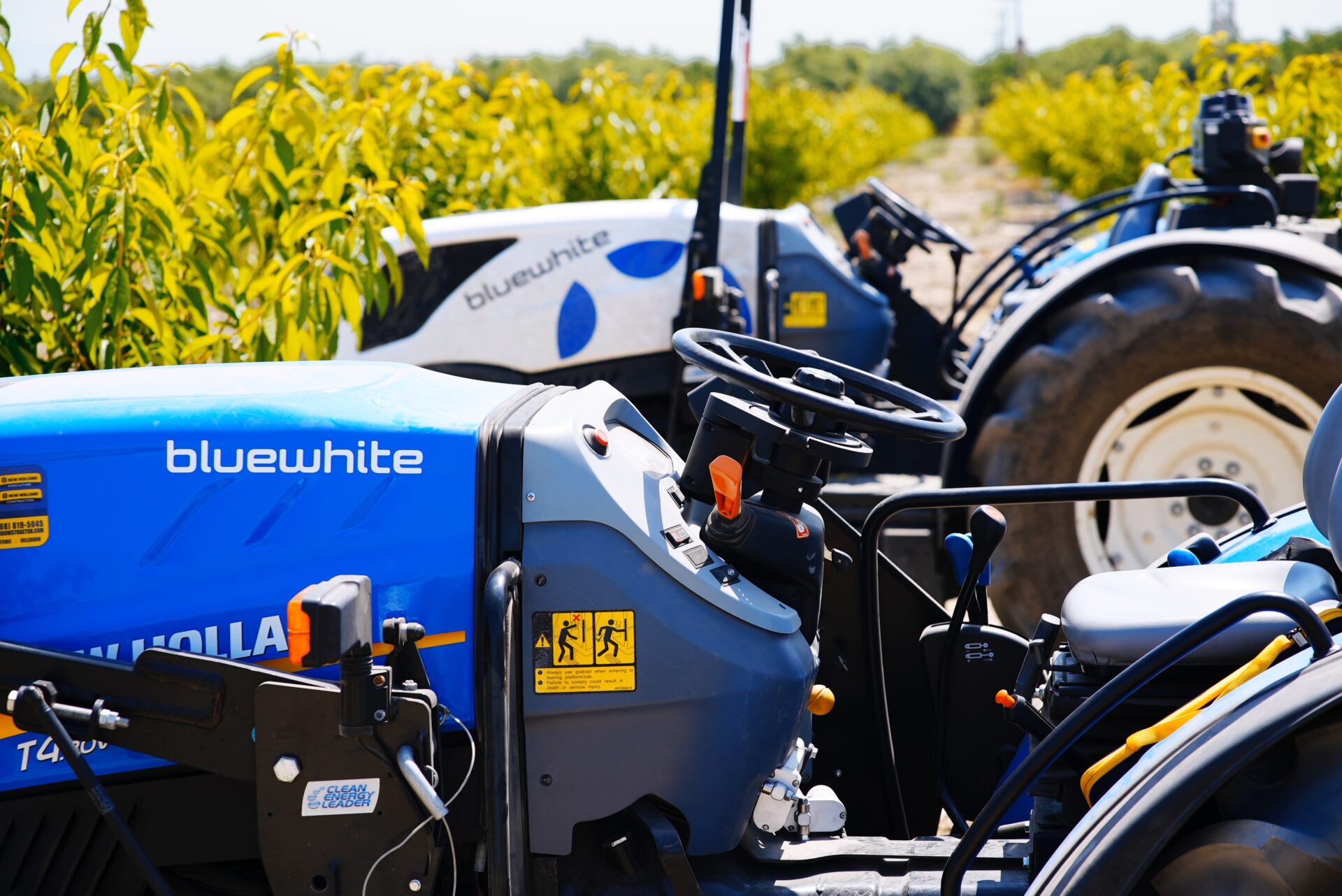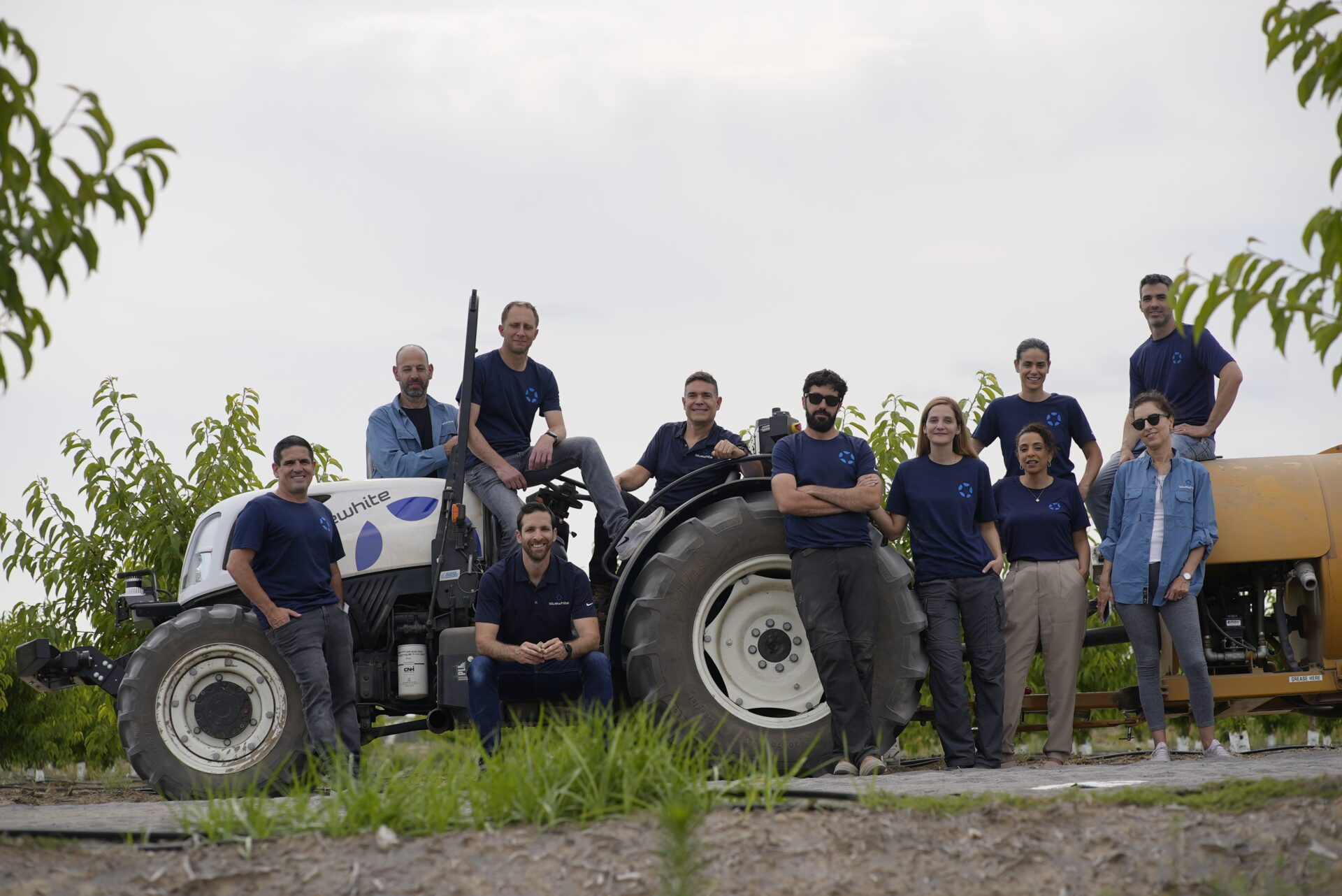After 25 years in the Israeli Air Force as both a combat pilot and as head of unmanned systems R&D programs, Ben Alfi decided it was time to shift his focus. “I wanted to do something with an impact on the world,” he tells AgFunderNews. “In a lot of ways, I wish I could have been passionate about doing things that are much simpler and make easy money in the short term. But it’s just not me.”
Using money from his pension plan, he set out to discover where his experience with autonomous vehicles would make most sense. The journey eventually landed him in agriculture, where he founded autonomous tractor company Bluewhite in 2017.
To be clear, Bluewhite doesn’t actually make the tractors. Instead the Israel- and California-based company takes, in Alfi’s own words, an “IKEA” approach to autonomy, outfitting existing machines with its system that uses computer vision, AI and navigation tech to execute tasks autonomously, from seeding and spraying to mowing and harvesting.
Bluewhite’s machines have covered more than 150,000 acres over 50,000 hours, according to Alfi, with the focus on permanent crops in markets such as Washington state and California. Just recently, the company raised a $39 million Series C from Alumni Ventures, LIP Ventures and others.
Below, Alfi (BA) explains Bluewhite’s approach to autonomy and how it can address agriculture’s current crop of challenges.

AgFunderNews (AFN): How’d you get from the airforce to farm robotics?
BA: After 25 years in the military service in the air force and dealing for many years with autonomous vehicles, I wanted to do something with an impact on the world.
I took half of my pension money, and then another half, and I went through a 10-year journey to see where autonomous vehicles could be influential.
The three years was to understand, “What do we do?”; the next three years were to make sure we did it; the last three years [have been about] making sure it stays after we’re gone. And one year for abnormalities.
This is how I live my life personally and I was lucky enough, by founding the company, to set the same agenda [for] Bluewhite.
We started in 2017. We just saw that all the stars are aligning in ag: the maturity of the technology, the complexity of the tasks, and the need. All three of those came together. We also understood the opportunity for Bluewhite.
AFN: What were the big problems in ag you initially set out to address?
Everybody was promising yield, and it was either startups or the growers who bleed until yield is proven, if at all.
What we looked at were operations costs, because this is something you can evaluate and control and see immediately. We saw that operation costs were rising and rising. Three things matter here: labor, the cost of chemicals and the cost of buying new hardware, which is also getting more and more expensive. With inflation, it’s crazy expensive.
So we decided to take existing tractors and transform them to autonomy. If it’s autonomous it drives well, and so we also [decided to do] the “see and spray” and other capabilities inside because you already have the sensors outside.
In the beginning, we looked at labor, labor, labor. But when we look at this in 2028, it will be the two other factors [chemicals and hardware] that will be much more meaningful. After that you can talk about yield. Give me ROI first and then I’m willing to talk about it.

AFN: What sets Bluewhite apart from other ag autonomy companies?
BA: We’re tackling the whole stack, and we’re focused on high-value crops that [require] all-year work. We have around 16 types of tractors that we know how to [fit out]. But we also have the methodology to learn a new tractor really fast.
First and foremost, we’re not dependent on GPS for all our connectivity. Almost all the time, we have three navigation systems that are running in parallel, and [the grower] can decide which one is the best to run at that time.
In the vineyard in the middle of the day, it could use good GPS and RTK [real-time kinematic] reception. If it’s August almonds in Fresno [California] in the middle of the night, lidar would be the leading sensor.
They’re always running in parallel, and in that way you can keep continuous capabilities, it’s fluid for the operator and the tractor itself, which helps with decision making.
We also have a nice balance of classic algorithms alongside AI. We’re not just using classic algorithms because those have a ceiling for their capabilities. And not just AI because [it takes] a lot of time before it can learn all of the edge cases. You can always put a new AI application in and it can keep on learning while the other [applications] are running.
What’s also unique about Bluewhite is being commercial. It’s nice to demonstrate a capability, but to be commercial is huge, and how we enable scale is important and most of our efforts right now.
We have a John Deere dealership that is selling our capabilities and are also transforming their regular tractors by doing the installation of the kit. We send an “IKEA” kit to the dealership. In the morning it’s a regular tractor. Two dealership workers can transform it in 14 hours. At the end of the day, the tractor is autonomous.
The big players that have been here a long time, they understand they cannot do it alone and they’re willing to embrace companies like us and cooperate. And I think this is happening more. People understand that it costs a lot of money to create those capabilities, and they want us to succeed. They wish it will be theirs I guess at a certain point, but there is more willingness to cooperate.

AFN: What are the big challenges right now for ag autonomy?
BA: I think it’s about responsibility, resilience and humility.
I’m very proud that almost all our cap table had never invested in ag. They had the alternative to invest in SaaS or cyber, or other things, but they saw that disruption can happen and they think they can make money.
But we need them because we want to bring food to the world.
Unlike other areas, like fintech or real estate, we have responsibility because if a robotics company fails, the ability to enter the market again and to recreate capabilities is hard. So I feel a lot of responsibility now.
The problem [of fixing food] is big enough to share. There is enough room for 10 Bluewhites feeding the world. There’s no reason to keep secrets. Everything should be transparent, and in that way we’re not wasting time on “lessons learned.” We’re not wasting time on who should do what.
Agriculture has a century that almost didn’t change, I think for a good reason, because trust is #1. Ninety percent of the people here trust themselves and God, so you need to be trustworthy. You need to be a long-term player. [Ag] is not a place for short-term players. And you need to be open and frank.
Once you cross certain barriers (and there are a lot of them), it’s amazing the ability to grow. If you do it correctly, with the correct patience and tolerance, there is room to be one of those disruptive market companies we believe Bluewhite can be.
In a lot of ways, I wish I could have been passionate about doing things that are much simpler and make easy money in the short term. But it’s just not me.
AFN: What’s next?
BA: It’s business as usual. We’re just keeping on with execution. Almost 40% of the money [from the Series C] was from new investors, which gives us more opportunities for growth potential. Some of them have amazing connections to help us.
Today we are on the West Coast, California and Washington. We were amazed to see the adoption rate in Washington. And our roadmap is to go to Europe and to Australia. After that, I’m guessing Latin America.




